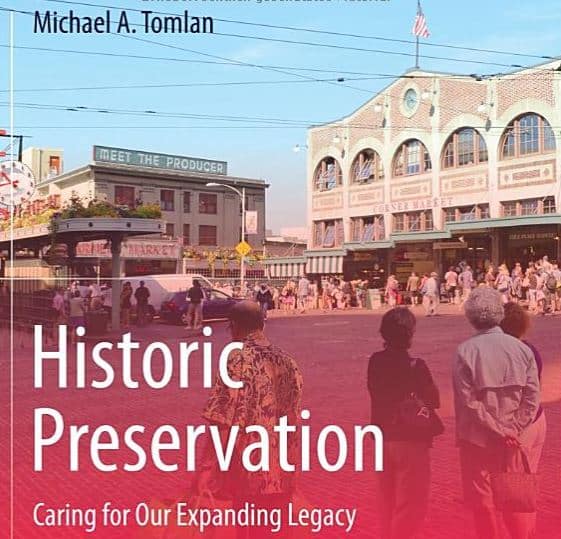FREE TRAINING
What is Real Estate Crowdfunding?
Learn how to build wealth and earn passive income in real estate while someone else does all the work.
009 Historic Preservation - The Penn Central Case

Prof. Michael Tomlan, Cornell...

History
Michael Tomlan, is professor of historic preservation and planning at Cornell University, and, especially if you have any interest in attending Cornell to do some graduate studies in real estate professor Tomlan is definitely the man you want to know because he also chairs the admissions committee.
I have a personal soft spot for historic preservation and, despite the resistance many developers and investors have to even attempting to touch such monuments due to preconceived ideas about expense and costly bureaucracy, I have always found them particularly lucrative. Tenants love them. The investor pool for them is reduced, perhaps, but those that do have interest typically harbor greater appreciation than they would for non-historic buildings and consequently are more likely to attach greater value to them. And in some cases there are not inconsequential tax benefits that help enhance the bottom line.
Leaders of The Crowd
Conversations with Crowdfunding Visionaries and How Real Estate Stole the Show
Discover how laws that gave us crowdfunding were solely meant to finance small companies and yet inadvertently opened the doors to allow you to invest in real estate like never before.
Read the book and listen to the actual conversations.
What is History as it Pertains to Real Estate?
How can something as abstract as ‘history’ be defined to the point that property rights can be affected? What is the foundation upon which, here in America, history has become as much a part of a building’s defining characteristics as its architecture, construction, or functionality?
Supreme Court cases are definitive of the fabric of American society, culture, and social values. The pivotal legal case that enshrines historic preservation in American real estate law and practice was the Penn Central Transportation Company versus New York City case was argued at the Supreme Court of the United States, on April the 17th, 1978. The court returned its opinion on June 26th that same year. The opinion lasts about three minutes - is contained in the podcast 0r you can listen to it by clicking on the prior link - and frames Professor's Tomlan's comments and insights in the NREF podcast.
Common Good Supersedes Higher Returns
All those historic preservation discussions you hear about and come across – whether at planning commission hearings, or architectural review committee meetings, or when you consider buying a home in an historic preservation overlay zone – they all rest upon the Penn Central supreme court decision of 1978. Property rights are not absolute, in America. A fair return on investment is accepted, but is not an inalienable right, and the common good will prevail when our awareness of history is to be preserved. This is very civilized behavior.
While the United States might have recklessly lobbed tea overboard on one frivolous night in Boston and abandoned the monarchy, leaving it with only the President and first lady upon whom it must now rely for guidance on culture and tradition – need I say more - it is reassuring that this country has managed, through historic preservation, to hold on to at least some of the stable values of the Old World.
How to Fund Your Deals
7 Steps to Raising Equity Online
RELATED PODCASTS
344 Tiffany Tai, GM Enterprise and Head of BizOps at Canva
Last Updated on June 22, 2020 by Dr. Adam Gower WHITE BOARD WORKSHOP Need More Money to Finance Your Real Estate Projects? Learn how to find more investors, raise more…
READ MORE >396 Dr. Jeff Anzalone, CEO of DebtFreeDr.com
Last Updated on September 15, 2021 by Dr. Adam Gower Dr. Jeff Anzalone, CEO of DebtFreeDr.com Grow Your Network of Real Estate Investors to Include Physicians NEW BOOK BY ADAM…
READ MORE >398 Paul Fiorilla, Yardi Matrix
Last Updated on September 15, 2021 by Dr. Adam Gower Paul Fiorilla, Director of U.S. Research, Yardi Matrix Thought leadership on trends in commercial real estate and the economy NEW…
READ MORE >














